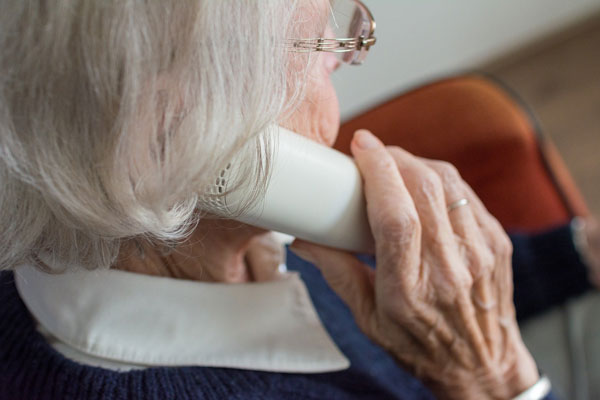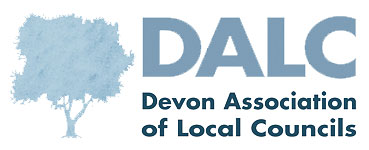Support unpaid carers by sharing the Devon Carers campaign
Help Devon County Council identify and support unpaid carers by sharing a campaign within your communities that aims to improve the lives of carers and those they look after.

Devon County Council is running a campaign to help support unpaid carers by encouraging them to register with Devon Carers and councils can help by spreading the word in their area.
Many people may not see themselves, or another person, as an unpaid carer; unpaid carers are anyone who is giving their time to support a family member, friend or neighbour due to an illness, condition, frailty, disability, Covid-19 or post-hospital care, either on a regular basis or occasionally. There may be as many as 130,000 unpaid carers in Devon playing a vital role with the value of their work being estimated at £1.6 billion a year. However, estimates suggest that over 50,000 unpaid carers in Devon are at risk of breakdown at any one time with 96,200 feeling exhausted and over 45,000 saying they feel unable to manage their caring role.
Early identification and support for unpaid carers can improve the lives and situations of the carer, as well as the person they look after, but also helps avoid unsustainable pressure on public services and finances. This campaign aims to increase the number of unpaid carers support by Devon Carers whether by providing a listening ear, advice on finances or emergency planning. Four groups of carers have been identified as not accessing support at the same rate as others, those groups include carers from ethnic minority communities, male carers, LGBT+ carers and working age carers.
The campaign runs from now until the end of next March, focussing on a different group each month with downloadable resources for you to share each month. Councils can share information through their networks (websites, social media etc) or may be able to identify and pass on information directly to someone who may be an unpaid carer. You can find all information about the campaign, including social media downloads, on the Devon Carers website.
Prepare for summer | heatwave plan to protect public health
Learn more about the heatwave plan for England and how to keep your communities safe during hot weather with the additional risks of Covid-19

The Government’s Heatwave Plan for England is published annually and aims to prepare for, alert people to, and prevent, the major avoidable effects on health during periods of severe heat. It recommends a series of steps to reduce the risks to health from prolonged exposure to severe heat for councils, individuals and local communities. The plan remains unchanged for this summer although additional actions may be needed due to Covid-19.
While most of us welcome a bit of sunshine, prolonged high temperatures can be harmful to your health. Some of those who run a greater risk of serious harm from high temperatures are also at greater risk of severe illness due to Covid-19. More people may need to be spending more time at home than normal where they may not be able to escape extreme heat. In addition, the NHS and care services are already stretched due to the pandemic, so it is important to know what actions can be taken to stay safe. The resources below can help the public understand how to stay cool at home, how to keep well in high temperatures, find safe places to be and watch out for illness.
There are some specific resources available for the 2021 summer included a ‘Beat the Heat’ poster and leaflet. Councils could share these resources within their communities to allow the public to prepare for potential periods of severe heat that we might get over the summer.
- Beat the Heat 2021 Poster – contains key advice for staying safe in hot weather.
- Beat the Heat 2021 Checklist – helps identify situations where overheating may cause harm, what actions to take and how to access support.
- Beat the Heat 2021 Leaflet – detailed information about staying safe in hot weather.
Help NALC with their ground-breaking research on dementia

NALC have teamed up with the University of Plymouth to undertake research on dementia in parish and town councils. They believe that councils play an important role in communities to find solutions to help tackle the effects of dementia.
The research will help find out what local councils are already doing in their communities to help put together a joint report summarising what councils are doing and making recommendations on how you can support your communities.
Cllr Sue Baxter, NALC Chairman, said: “This cutting-edge research led by Professor Ian Sherriff BEM (academic partnership lead for dementia at UoP) is an interesting opportunity to get more insight on what local councils are soing. But more importantly, on how we can support them to level-up and help the most vulnerable in their communities”.
There are currently 850,000 people in the UK living with dementia. It can put a strain on health services and for families and carers. Dementia sufferers can struggle with loneliness, confusion and isolation. It is especially important for those in rural areas that local councils create a community where their residents can be active and feel safe.
We know many of our Devon councils are already engaged in schemes to support their communities with dementia, including dementia friendly parishes, such as Dementia Friendly Parishes in the Yealm and Great Torrington. Please take the survey to let NALC know what you’ve been doing.
Links
Find out more about the work of the National Association of Local Councils
Coronavirus | NALC and SLCC issue joint letter to councils

NALC and the SLCC have issued to a joint statement to councils commending them for their work in supporting their communities as they respond to the COVID-19 pandemic. Read the letter:
“As the coronavirus pandemic continues and the UK enters this new phase of government measures, we wanted to reach out to the local (parish and town) council sector. These are unprecedented and challenging times, and our first thoughts are for the health and welfare of yourselves and your communities.
We are hearing stories from up and down the country of local councils stepping up and supporting their local communities and most vulnerable. Such as Woodbridge Town Council in Suffolk, which has set-up an emergency response group of councillors and volunteers to assist with collection/delivery of medicines, shopping, walking the dog or simply being a voice at the end of the phone, and Hagley Parish Council in Worcestershire, which is acting as an information hub and plans to publicise restaurants are offering a delivery service and contact details for NHS helplines. The National Association of Local Councils (NALC) has collated further case studies and is keen to find out more from a wide range of local councils — tell us more at www.nalc.gov.uk/coronavirus.
Following the prime minister’s announcement, we wanted to reiterate the importance of following the new rules on staying at home and away from others. This guidance impacts on all of us and there are the additional need to self-isolate or shield from contact depending on your situation. It essential that we all follow these rules to slow the pandemic and to support our NHS. Both NALC and the Society of Local Council Clerks (SLCC) are asking local councils to stop holding any physical meetings or gatherings during this time. This includes full council, committee meetings, annual parish or council meetings. These are extraordinary times, and they call for extraordinary measures. The health and safety of your staff, councillors and local communities should be your first concern.
The government is working on a Coronavirus Bill and associated legislation that will allow your council meetings to be held remotely and to make decisions without the need for physically meeting. This will be introduced soon, and so we encourage you to be patient. We are making representations to ministers, parliamentarians, civil servants and the Local Government Association to ensure our sector’s concerns are considered and addressed and will be providing updates to our respective members as soon as further information is forthcoming.
NALC and SLCC are in regular contact to share knowledge, understand the sector’s concerns and provide mutual support for our members.”
Let’s Talk Fremington
Fremington Parish Council’s new partnership project aims to provide much needed mental health services and improve wellbeing in the community
Fremington Parish Council with support from Devon County Councillor F Biederman and North Devon Councillors Jayne Mackie, Joy Cann, Helen Walker and Will Topps has taken an innovative step to fund a 46 week programme to help improve mental health within the Parish. The programme will be run by Clarity, a Barnstaple based mental health charity which offers a range of counselling and group therapy to people experiencing mental health or emotional issues.
For some time, Fremington Parish Council has wanted to help members of its community who may suffer with depression or anxiety, low self-esteem, be socially isolated or lonely and need support with these factors, as they all impact on mental wellbeing.
Cllr Sue Kingdom, Chairman of Fremington Parish Council said “I am delighted that Fremington Parish Council has taken the initiative to provide mental health services in its community. Mental health and isolation issues can affect anyone at any time and I know that all the local councillors are pleased that this council with the support of district and the county councillors are able to provide this service for our community.
Cllr F Biederman, Devon County Councillor for Fremington said “‘I am very pleased to be able to support this initiative by the Parish Council, there are so many in our community that suffer with varying levels of Mental Health, I went through a period of depression myself at one time, I was lucky to have the support of my employer, who organised a few support sessions, that made a huge difference to myself and enabled me to get over it relatively quickly. I hope this will give others a similar chance”.
Local ward member for Fremington, Councillor Jayne Mackie, says: “It is such a privilege to be able to give grant money and my support to such a forward-looking project. This initiative highlights how we need to start the conversation about mental well-being at parish and ward level and hopefully, more areas will take our lead”.
The group will run on a Tuesday from 12pm until 2pm at the new Beechfield Centre, which is due to open in September and will have two counsellors work with the group in a safe and confidential environment, helping them to build confidence, look towards positive outcomes and improve their social and communication skills.
Guest post by Kate Graddock, Clerk to Fremington Parish Council
Have your say: NHS long term health plan for Devon
#Bettertogether
Help shape the future for health and care in Devon by taking part in Devon Clinical Commissioning Group’s latest engagement survey.

You may be aware that on the 11 July the NHS in Devon launched an engagement process for the long term plan for Devon. Called Better for you, Better for Devon the plan will make sure Devon’s NHS is fit for the future, providing high quality care and better health outcomes for people and their families, through every stage of life.
They are asking the public to share their views through an online survey which can be found at the following link – https://www.surveymonkey.co.uk/r/BetterDevon – they are also encouraging participants to take part and use their Twitter account to highlight the survey to others in your community, a draft tweet is set out below should you wish to use it –
I’ve completed the @NHSDevonCCG survey to help shape the future for health and care in Devon. Complete it to have your say https://www.surveymonkey.co.uk/r/BetterDevon #betterdevon
You may find the following links to Public Health information useful, the websites provide demographic information across a range of different geographical areas.
